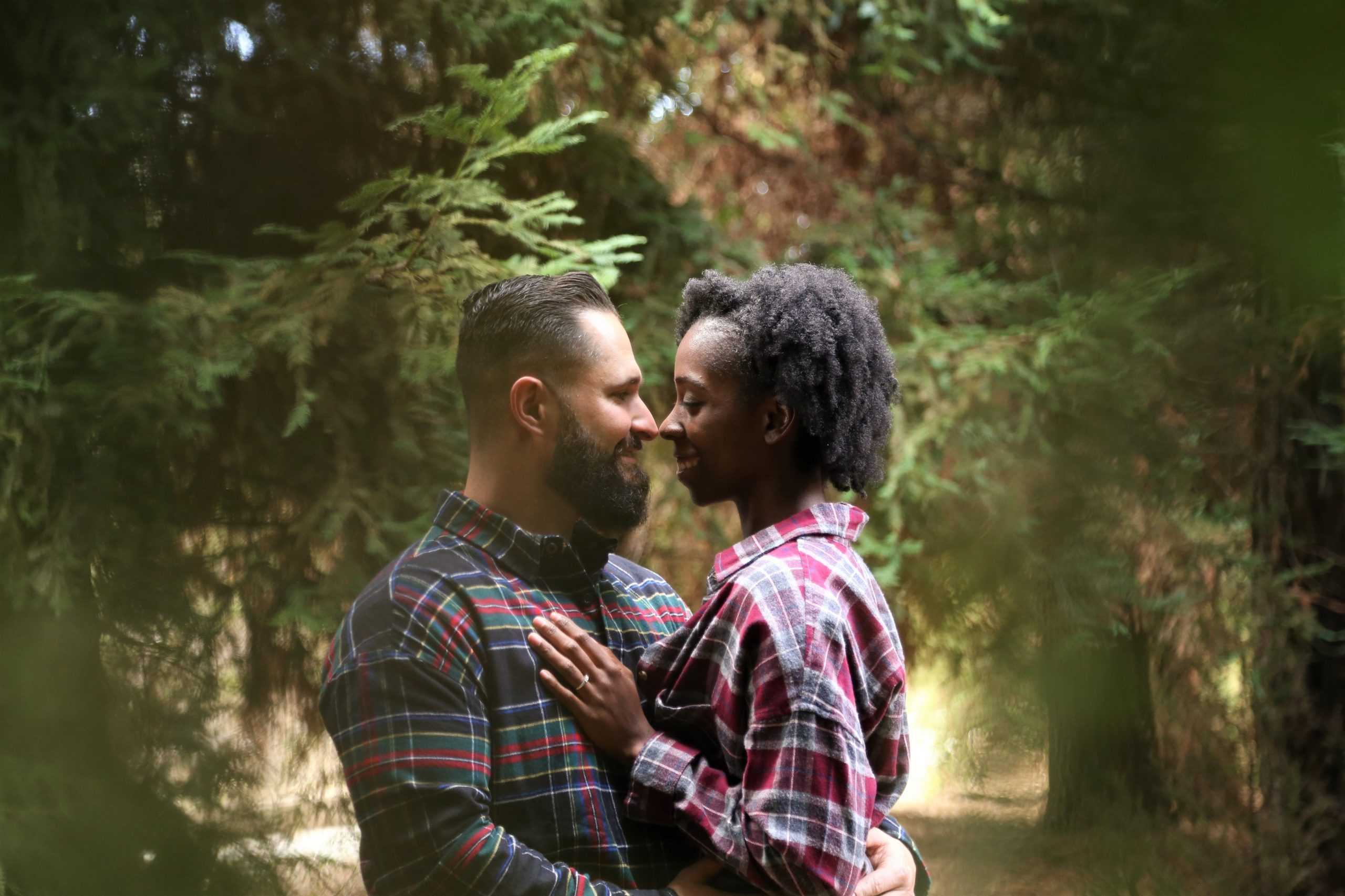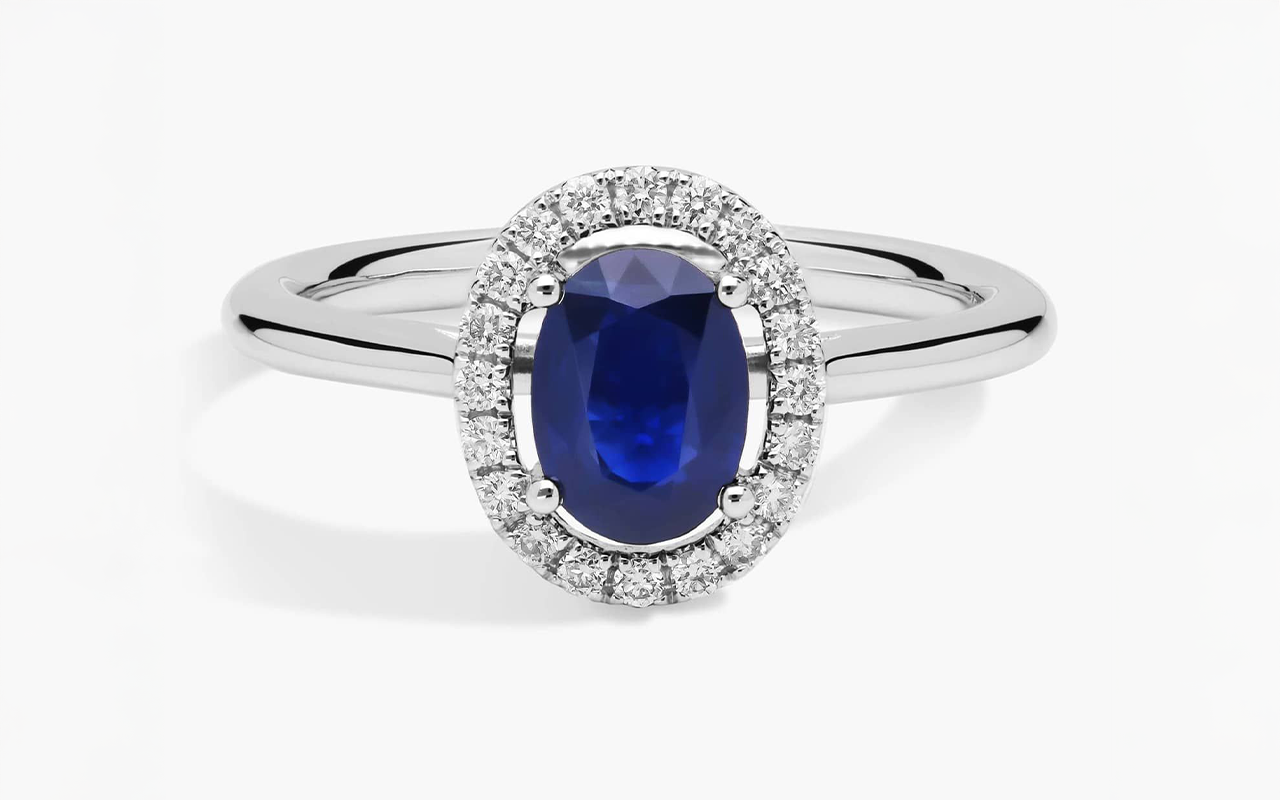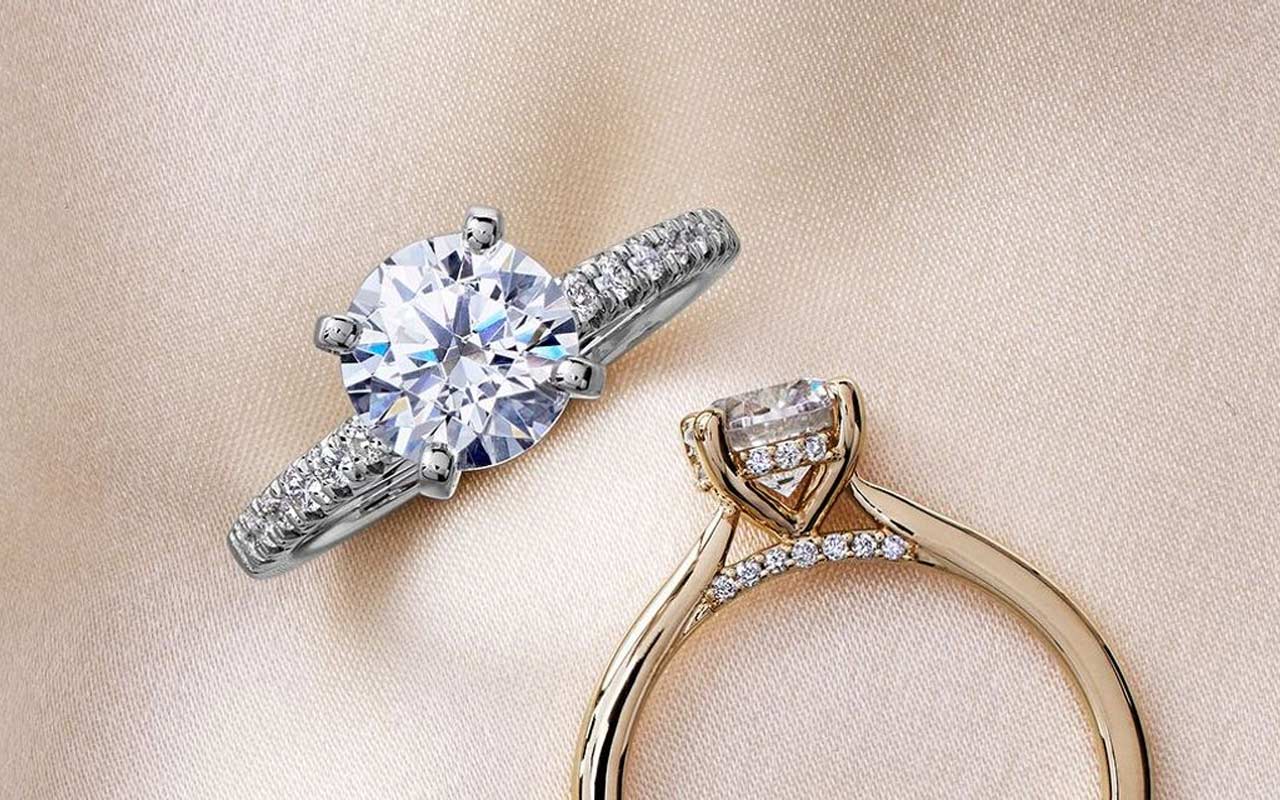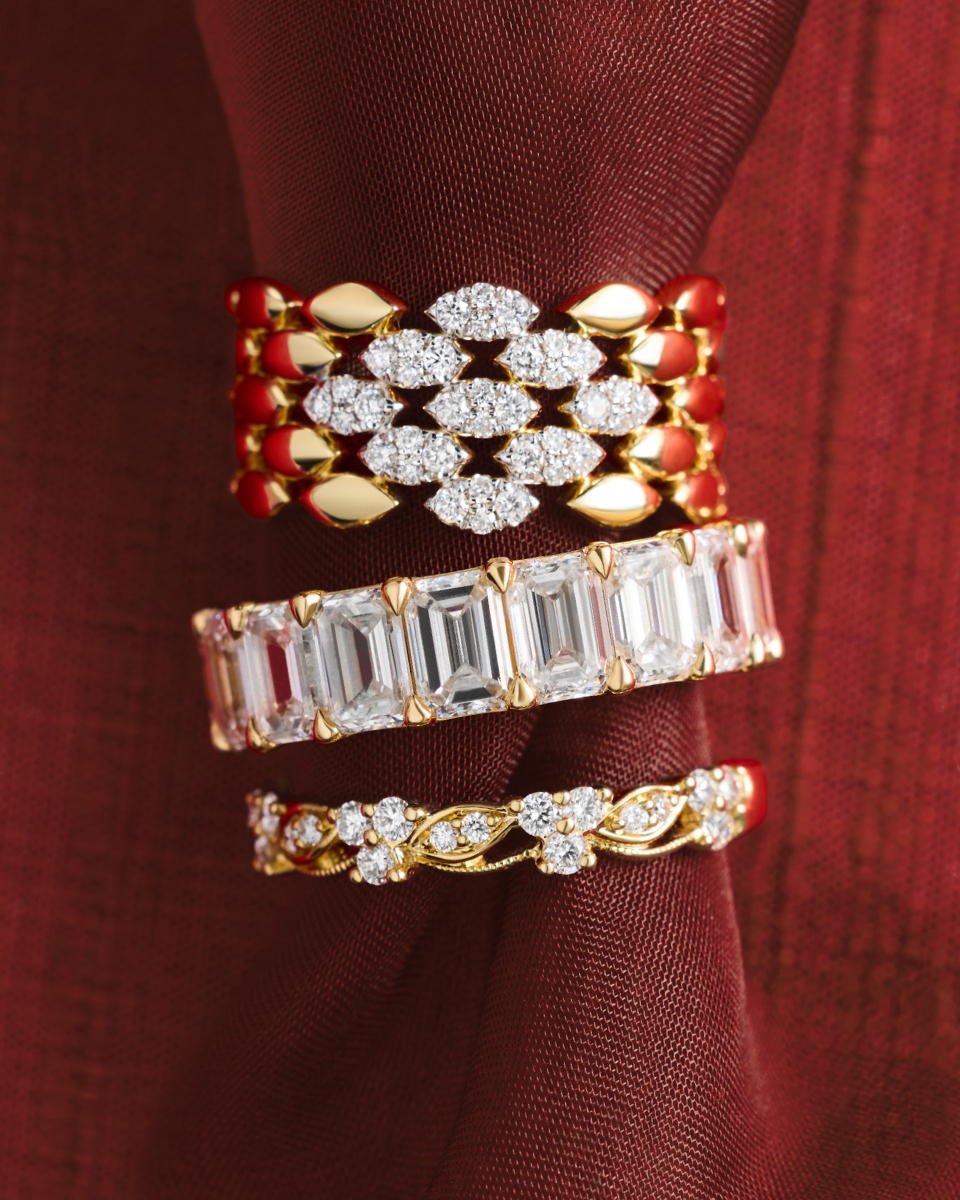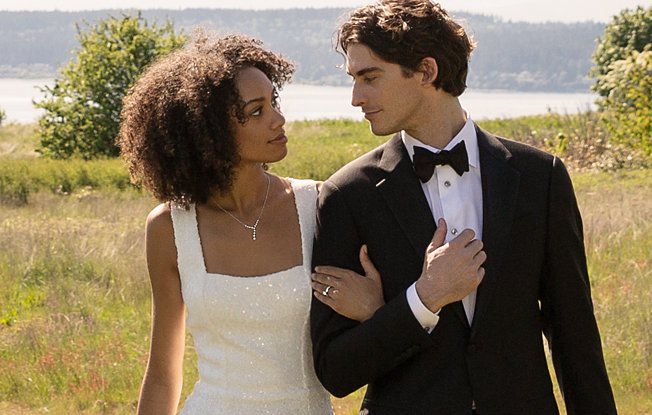
According to the latest figures, around 70% of all brides in heterosexual marriages in the U.S. adopt their husband’s last name, so this long-serving tradition is still very much alive. But what happens if you have second thoughts about changing your name when you get married? or are in a same-sex relationship?
Whether or not you take your spouse’s name is entirely a personal choice, much like the style of engagement ring you choose or the type of wedding you have. If you’re considering what’s best for you, read on for our in-depth look at the history behind this tradition, as well as the rise in alternative ideas for couples and families of all kinds.
Let's Take a Look Back at Where This All Began
To understand the evolution of the tradition of a wife taking her husband’s name, let’s take a look back at how this custom began and what it means today.
A Brief History of Last Names
Historically, last names didn’t hold much importance. In the earliest records from Medieval England, people were usually known by just their “Christian name” given at their baptism. However, as populations grew, names became too common and there was confusion over which “Anne” or “Thomas” was being spoken about. This is when last names came into use.
Names usually came from lineages such as Williamson (son of William) or locales such as York or Dale, or even professions such as Butcher or Potter.
The Birth of a Tradition in Law
Women taking the name of their husbands didn’t become common until the 9th century, when lawmakers began to consider personhood, marriages, families, and what they meant in law.
The doctrine of coverture was developed which meant women were considered “one” with their husbands and would have to take on their husband’s name, over their family name. The archaic nature of coverture meant women no longer had a legal identity, aside from as a connection to their husband. During these times, prior to marrying, women were legally “one” with their father.
The Evolution of a Modern Tradition
Thank goodness, times have moved on dramatically in most of the world and the act of taking a spouse’s name is a tradition that doesn’t hold the same legal power, and has become more a personal choice. In the same way you would select your own wedding rings and make big life decisions such as buying your first home, or having children, taking your spouse’s name is something each couple decides together.
While the tradition and history may not sound particularly appealing, taking your spouse’s name has become more of a sign of commitment than one of giving up your own identity. Modern law sees marriage as binding two people together as equals, so remember—it is your choice and something only you and your spouse need to discuss as a team.
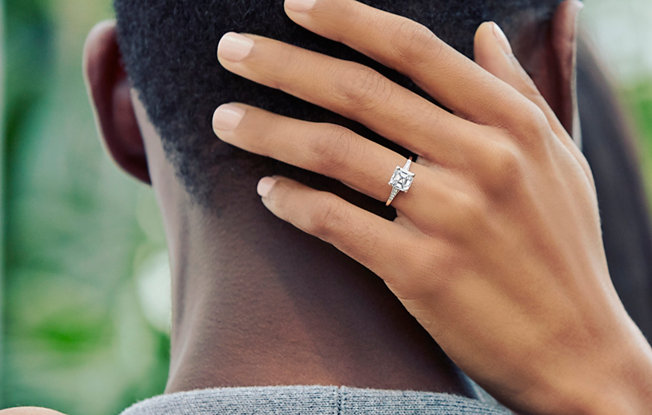
Pros and Cons of Taking Your Spouse's Name
Every couple is different. Some may like to have everything matching, whereas others are more individual and maintain their original lives (and even homes) after their big day. Marriage does not have to be one particular way—it is a partnership that you and your spouse create together.
Take for example the way you chose your wedding bands. Did you look for separate wedding rings for men and wedding rings for women? Or did you opt for matching couples rings?
To help you make sense of it all, let’s take a look at the advantages and disadvantages of taking your partners last name.
The Advantages of Changing your Name

Image Credit: Alvin Mahmudov
There are many reasons you may want to take your spouse’s name and here are some of the top benefits which may influence your decision:
1. Practical Reasons
Taking your spouse’s name and having the same name as your family does make things easier, especially if you have or plan to have children. A common name binds you as a family and makes you easily recognizable as such. This makes it easier when you travel, use your passports, deal with schools, and deal with other parents on an almost daily basis.
This can be even more important for same-sex couples who, unfortunately, may still find it more challenging to prove their legal union in a situation like a medical emergency.
2. Making a Break
Some people don’t have an ideal relationship with their birth family and taking on their husband’s name means they get a fresh start. In other words, the chance to adopt this new name as their own means they get to treasure it in a way they couldn’t with their birth name. Similarly, if you have a last name that you have never liked or felt comfortable with, you can drop it and begin anew.
3. Signifying Commitment
Some people believe a name change is key to the commitment of marriage. Changing the name can be as important to some people as the wedding ceremony itself, so this alone is reason enough if your feelings are particularly strong.
4. Monograms and Personalization
When organizing your wedding gift registry, it can be sweet to request monogrammed goods for your new home. Personalized décor items are particularly popular as wedding gifts, but obviously, without the name change, there won’t be any Mr & Mrs”, “Mr & Mr”, or “Mrs & Mrs” gifts to hand out. While hardly essential, it is a sweet and heartfelt way of having keepsakes of your big day which you can keep for a lifetime.
5. Avoiding Annoying Assumptions
If you are in a heterosexual marriage, a lot of people will assume you’ve changed your name, even if it isn’t the case, and this may get tiring over time. You may find people address you as “Mrs.” even if you didn’t change your name, and depending on your character, you may or may not want to spend a lifetime correcting people or answering to a title that isn’t your own. It’s not a big deal to everyone, but it’s worth thinking about whether you could put up with it for the rest of your life.
The Disadvantages of Changing your Name
Changing your name is very much the norm, but it isn’t for everyone. If you’re not sure, consider some of the key disadvantages of making the change:
1. Impact on Your Identity
Getting married doesn’t mean changing into a different person, but a new name can feel like a new identity and it may make some people feel uneasy. If the idea of changing your name makes you feel like you’re losing or changing your identity and you don’t feel comfortable with this, don’t do it.
2. At Odds With Your Politics
Research suggests that as many as 68% of women under 30 consider themselves feminists. Those with feminist values and many other political stances may feel that taking on your spouse’s name is at odds with your personal views.
For queer and same-sex couples, the history of taking on a partner’s last name is rife with patriarchal oppression, so many prefer to avoid taking this route altogether.
Just be conscious that the question of why women are still changing their name may come up and if no answer feels right for you, consider whether it’s the right choice.
3. Losing the Family Connection
Only children and those who are the last bearing their family name may not want to give it up. Being at the end of the line may carry significance and wanting to retain it is a completely personal and valid choice.
4. Professional Standing
If you are already known and renowned in your career under your maiden name, changing it may feel like a disconnection from your past achievements. From a practical perspective, it may cause some confusion too.
5. Giving up Something You Love
Of course, your love for your new spouse matters, but if you have an unusual, unique, or simply a name you’ve always loved and been proud of, it’s understandable you may want to keep it. Any of these reasons is enough to stick to your given last name.

Alternative Ideas for Changing and Adapting your Name
Thankfully, this is not a binary choice. If you want to do things differently, then consider some of these ideas which have been tried and tested—some for centuries!
Create Something New
Some people want to be unconventional and create something fun and entirely unique. If you and your spouse’s names can be blended together in a way that works for both of you, then why not? For example, the wife of Irish actor Chris O’Dowd, British writer and presenter Dawn Porter, took the “O” from her husband to become Dawn O’Porter. We think this is a pretty neat idea!
Many same-sex couples also opt to blend their names together to form something new which they both take. This avoids the oppressive history of one partner changing their name, while still ensuring both parties are bonded by a common last name for practical reasons.
Hyphenate
After a wife taking her husband’s last name, hyphenated or double-barreled names are probably the most common way of doing things. It might be that your children already share both names, or as a family, you both take on this new hyphenated combination after the wedding.
Both the spouses can have each other’s names, so you are connected as a couple and both names remain. Another factor to consider is how your names sound together and in which order they work best.
Keep Your Original Family Name as a Middle Name
This is a more traditional step that women have been taking for centuries. Rather than removing their “maiden name” altogether, they keep it as an additional middle name. This allows your identity to remain as you take on your newer name.
The Groom Takes the Bride’s Name (in a heterosexual marriage)
If you are worried that your family name will die out when you take your spouse’s, then consider whether your partner will take your name. This isn’t as uncommon as you might think, and it ensures that your name can continue to be passed through the family.
Do Nothing
No one can tell you that it’s essential you change your name when you get married, so if you don’t want to do it, you don’t have to. Your wedding ceremony and the act of coming together in legal union may be enough on its own for you, and keeping hold of your own name is entirely your choice.

Your Marriage, Your Rules
Getting married is an extremely important milestone for many couples and is a sign of their commitment to each other. For some, it is equally important that they share a name, and for a large percentage of heterosexual couples, the husband’s name is the one they choose. While the history behind this is not the most appealing, it has evolved to become much more about a commitment and connection as a family unit.
With same-sex marriage being brought into law in the U.S. relatively recently, many couples are also pondering this important decision. Thankfully, times have moved on and there are many unique and practical ways for couples to join as wife and wife or husband and husband, with both partners being fully represented in the marriage.
Overall, there are many individual factors that may influence your decision to take or not to take your spouse’s name, and in reality, it is a decision which only you and your partner can make. The main thing to remember is that you’re getting married to the person you love and whatever your names may be—you’re beginning your new life together, and what could be more exciting than that?

